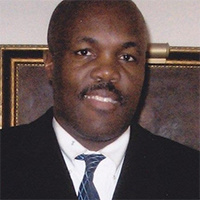Clarence Center Felony Lawyer, New York
Sponsored Law Firm
-
 x
x

Click For More Info:
-
Law Office of Mark S. Guralnick
55 Madison Avenue 4th Floor Morristown, NJ 07960» view mapCriminal Defense Law Dedicated. Fearless. Successful.
Mark S. Guralnick and his legal team have helped clients throughout the USA and across the world by applying unparalleled dedication and hard work to each case.
800-399-8371
Not enough matches for Clarence Center Felony lawyer.
Below are all Clarence Center Criminal lawyers.
Karl Martin Myles
✓ VERIFIEDMy Web designer told me that I had to provide him with more information on myself to explain to people better who I am. Specifically he said for me to... (more)
Derek Akiwumi
✓ VERIFIEDDerek Akiwumi, representing clients throughout WNY, has a proven reputation for getting the results you need. From criminal defense, appeals, and pers... (more)
Gary A. Joseph
FREE CONSULTATION
CONTACT Mark Guralnick Morristown, NJ
Mark Guralnick Morristown, NJ AboutLaw Office of Mark S. Guralnick
AboutLaw Office of Mark S. Guralnick Practice AreasExpertise
Practice AreasExpertise


